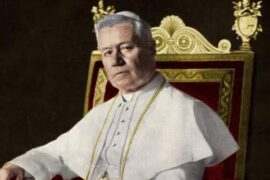Historically, the word “tribe” has been used almost exclusively by colonial powers in an attempt to stigmatize and barbarize the indigenous people of a colonial region.
Whether it be Spanish and English attitudes towards Native Americans, European attitudes to Africans, or even ancient Roman attitudes towards Gauls, Franks, and Goths, “tribes” have been held up as the uncivilized antitheses to civilized nations and empires.
Despite the diverse identities and communal associations of these individuals, the colonial powers lumped them into non-descript identities to downplay their complex societies, with the word “tribe” serving as a keyword for barbarism and backwardness.
But the Jewish people have always proudly traced our roots back to the twelve tribes of Israel – Shivtei Yisrael. Even today, the weekly Torah reading and daily Birkat Kohanim use tribal belonging to determine one’s role.
But why have the shvatim become such points of pride for B’nei Yisrael when the rest of the world paints tribes in such a poor light?
The key lies in different approaches to historiography. Western historiography sees human history as a train of progress, in which civilization is the ultimate aim of history and that which appears to be uncivilized is deemed inherently backwards. Therefore, tribes, which imply loose organization, non-sedentary life, and subsistence living, exist outside of historic progress.
In contrast, Jewish historiography’s more cyclical approach sees primordial forces and organizations as the historic ideal. In this view, that which exists now is simply a filtered manifestation of that which came before – so in each moment throughout the history of Am Yisrael, the tribal divisions of the ancient Israelites remain salient parts of modern Jewish identity.
This was especially true during the era of the shoftim and the first Temple period. The land was divided between shvatim, with each holding its own tribal territory.
Even centuries after the conquest of the land and the solidification of a sedentary population, the Israelites referred to themselves as Shivtei Yisrael and identified strongly according to tribal affiliation. Beyond the priestly duties of shevet Levi, each tribe had its assigned role in the political, economic, and military system of the kingdom.
Drawing upon the blessings given to each tribal patriarch by Yaakov in B’reishit 49, such as Yehuda’s kingship and Z’vulun’s naval dominance, each tribe filled an essential role in ancient Israelite life. The devastating abduction and dispersal of the northern tribes by the Assyrians left only Yehuda, Binyamin, Shimon, and Levi living in the land, and to this day, the exact locations and identities of the lost tribes remains shrouded in mystery.
But today, as has been the case for centuries, those hoping to join the modern Jewish people due to local histories of Israelite origin hold the lost tribes up as secrets to their past.
Among the best known among them, the B’nei Menashe of northeast India claim descent from the lost tribe of Menashe and have been recognized as such by the Israeli Rabbinate.
The Beta Yisrael of Ethiopia similarly claim descent from the tribe of Dan, which has also been recognized by the Israeli government. The acceptance of Ethiopian and Indian Israelites into Israeli society due to their belonging to lost tribes is a testament to the power of Israel’s tribal history in the popular mind.
Similarly, the continued importance of Judea, the land of Yehuda, in the modern Jewish consciousness is a testament to the staying power of tribal identity, territory, and sovereignty today.
By identifying as Yehudim, descendants of the Biblical tribe of Judah, Jews today hold fiercely to the tribal history of our people, in a time of national unity and sovereignty on the basis of tribal federation.
Even more deeply, as our tradition asserts that ultimate redemption will involve a reunion with the lost tribes, the Jewish people see our ancient past and our messianic future deeply linked to the maintenance and discovery of primordial tribal identities.





